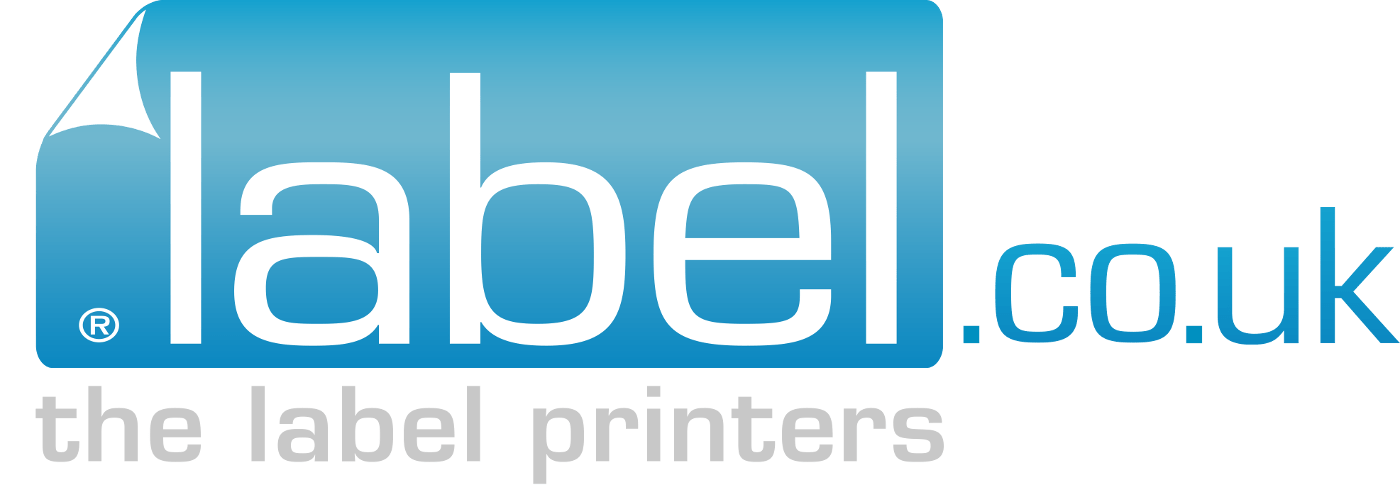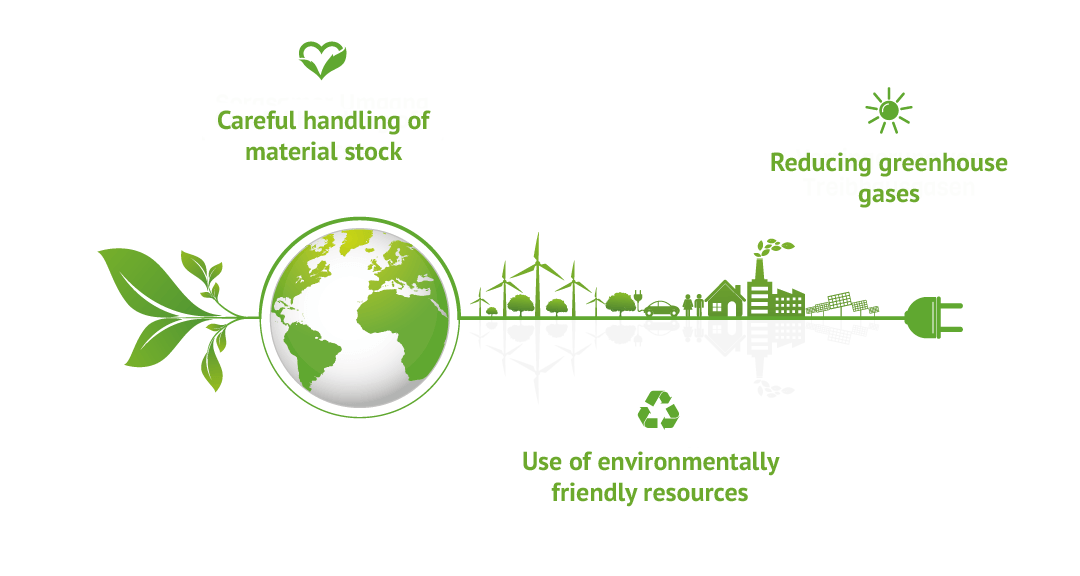
If you want your business to thrive, you need to keep an eye on trends shaping the global market, such as economic developments and consumer behaviour. Being aware of current events in the political sphere as well as the overall sentiment among consumers helps you stay relevant.
In many industries a specific trend is gaining momentum. Sustainable practices as well as ethically acceptable production and delivery chains are significant factors not only for consumers but also for investors. So, in addition to placing value on the use of natural ingredients, many people now also take into consideration whether fair production methods were involved in the making of their goods. In this blog article we have summarised the most interesting information for all those seeking to run a successful, humane and future-oriented business.
Choose the Right Framework

Marketing eco-friendly products no longer just means using natural and sustainable ingredients. There is much more to it! Responsible sourcing and humane working conditions are things that many consumers expect nowadays. This change in priorities away from cheap mass production towards ethically sourced, high-quality products puts pressure on businesses across industries.
So, what exactly does it mean to provide a sustainable production chain? To help you keep track of all the steps you can take to make your business more sustainable, here are some helpful frameworks.
The United Nations, for example, has drawn up a list of Sustainable Development Goals. This list can act as as a helpful guideline for your ambitions. Some of these goals are:
- Ending poverty
- Providing quality education to everyone
- Working towards gender equality
- Decent work and economic growth
- Responsible consumption and production
Taking initiative towards achieving any of these goals can contribute immensely to your brand’s image and reputation. You could set up a designated team who would be responsible for researching and working towards your goals. Such efforts have a twofold advantage: You actively get involved in securing the planet for future generations while also attracting a certain audience of consumers to your business.
Another framework that is worth looking into is the ESG (Environmental, Social, Governance). This set of standards mostly provides information to “investors about the social and environmental impact of companies and their governance beyond revenue or profit generation” (CBI). Businesses led according to ESG standards are thus more attractive to investors, who are aware of the significance of sustainable practices. This shows again that your sustainability efforts could benefit you and your business in various ways.
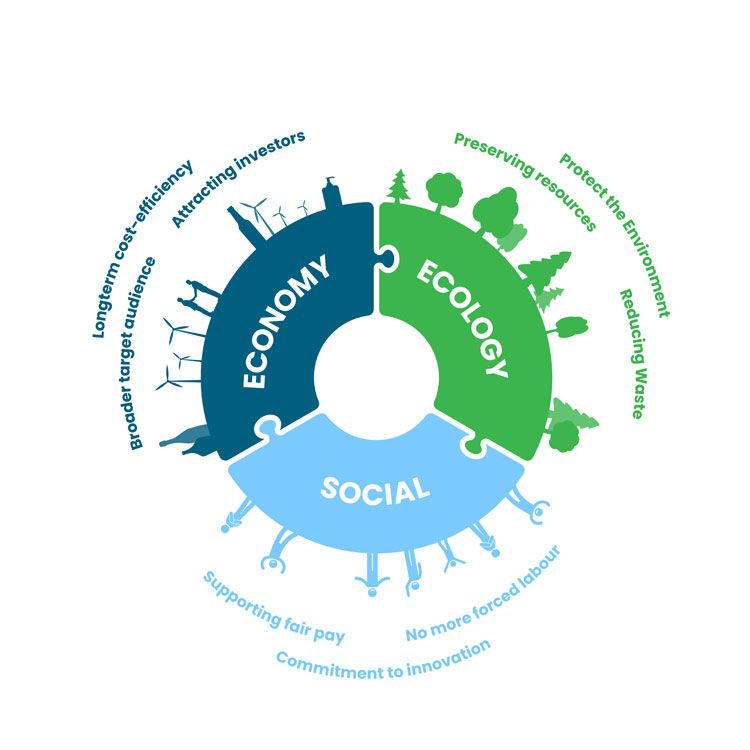
Transparent Communication Builds Trust
First of all: Make sure your claim to sustainability is legitimate. Do not try to hide failed attempts, exaggerate your successes or even lie about initiatives you support. Instead, you should look out for organisations that reward dedicated businesses with certificates or other forms of proof for their commitment. You can then use these to showcase your effort on your website or social media channels.
Certification from established institutions will boost your reputation and the trust consumers feel towards you and your brand. Hence, to properly communicate your efforts in this area it is best to make sure they are measurable and communicable. The same is true for openly communicating about potential difficulties or failed attempts. Sharing these experiences and learnings with your community not only makes you more trustworthy but also relatable. Use every part of this journey to connect with consumers.
Ideas for Implementation
If you are still not sure how to concretely take action and lead your company toward a sustainable future, here are some suggestions:
#1 Make sure your suppliers implement sustainable development goals. This means, paying attention to factors such as forced labour, child labour, corruption, fair pay and working safety. There are auditing tools that can help you review the conditions under which your suppliers source their goods (e.g. SMETA).
#2 Avoid ecologically harmful practices like deforestation. Measures such as these not only benefit your reputation but will also set you up for long-term success (UN Global Compact). Furthermore, they will help you stay ahead of obligatory regulations along those lines creating a competitive advantage.
#3 Choose a supplier who values biodiversity in their farming. It is an essential part of making agriculture sustainable and preventing soils from being over- or undersaturated, sealed or contaminated due to monocultural cultivation (environment.ec.europa.eu).
#4 Invest in green technologies and use electricity from green sources. It might be an investment at first to implement innovative, green technologies but in the end it will attract new customers as well as investors and be worth your while (British Business Bank).
#5 Start implementing eco-friendly standards at a microlevel. Instruct your employees to recycle their waste. You could even introduce a system of small rewards for those who show particular commitment in this area (British Business Bank).
#6 Use eco-friendly packaging materials that complement your product’s natural character. There are many sustainable options on the market. You can choose packaging and labels made from recycled or renewable materials (gras, hemp etc.), or even have PP films that are made from plastic waste collected by the side of the ocean
From Guideline to Law
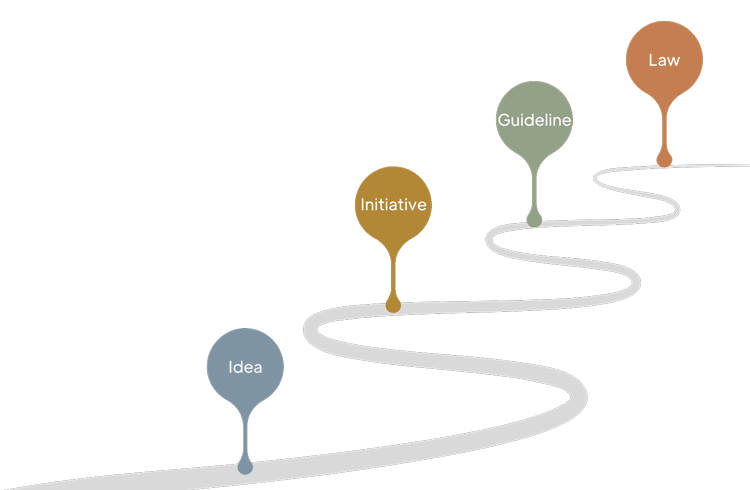
Climate change is something that affects us all and many people are increasingly concerned about environmental issues. Therefore, these issues have been finding their way into political spheres for years. Entire parties are dedicated to preserving the planet’s resources for future generations. Thus, legally binding frameworks dictating environmentally friendly policies in relation to agriculture, transportation etc., are progressively put into action.
The European Green Deal, for example, is an action plan created by the European Commission, which is aimed at making Europe the first climate-neutral continent by 2050. This plan includes directives for increasing the use of green energy, making the food system more environmentally friendly, cutting emissions drastically, and providing funds for areas that will need more help with this transition (European Green Deal Policy Guide).
To create incentives for the implementation of these directives, guidelines for eco-friendly standards are turned into laws. So, the European Green Deal will gradually make committing to carbon neutral production and import, or following guidelines to ensure soil health as well as biodiversity obligatory rather than voluntary.
Naturally, this affects the ways businesses operate inside the European market – whether producing, selling or buying. They must ensure implementation of more environmentally conscious practices in their own businesses as well as their suppliers’. Of course this can be challenging. However, with the right resources, information and sense of innovation, it is a challenge well worth facing. Because after all, you can not only contribute to a greener economy but also run a future-oriented, profitable business at the forefront of innovation.
What to Take Away from This
At the end of the day, all that matters is that you are willing to show initiative. Especially in times where eco-friendly legislations are becoming more numerous and pressing, staying ahead of sustainable practices is crucial for successful entrepreneurs. You will see that once you have taken the first steps towards a more sustainable corporate governance the benefits outweigh the risks. So, start your journey towards sustainability now!
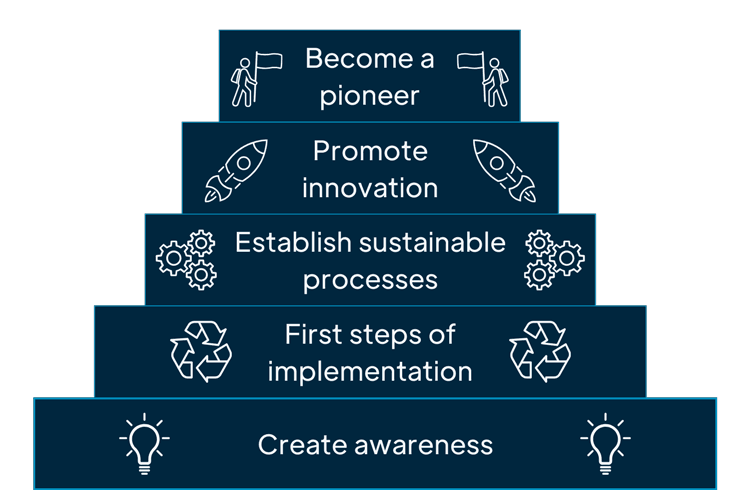
Sources:
European Green Deal Policy Guide, assets.kpmg.com/content/dam/kpmg/xx/pdf/2021/11/green-deal-policy-brand-update-v4-web.pdf. Accessed 1 July 2024.
How to Implement an ESG Policy for a Small Business | British Business Bank, www.british-business-bank.co.uk/business-guidance/guidance-articles/sustainability/how-to-implement-esg-deploying-esg-in-your-business. Accessed 28 June 2024.
“Soil Health.” Environment, environment.ec.europa.eu/topics/soil-and-land/soil-health_en. Accessed 1 July 2024.
“The Ten Principles: UN Global Compact.” The Ten Principles | UN Global Compact, unglobalcompact.org/what-is-gc/mission/principles. Accessed 28 June 2024.
“Which Trends in the European Market Offer Opportunities or Pose Threats for Natural Ingredients Used in Cosmetics?” CBI, https://www.cbi.eu/market-information/natural-ingredients-cosmetics/trends. Accessed 28 June 2024.
